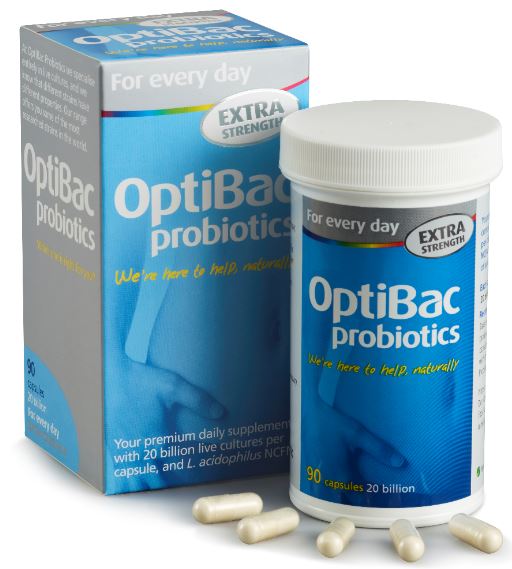Regular readers of this blog will, no doubt, be aware of just how important the digestive system is to the body’s overall health. Others, though, may not be. Not only is this part of the body responsible for the ingestion and processing of all the food and drink we consume, it’s also responsible for the gathering and processing of all nutrients and vitamins from our food and drink.
As such, then, it’s fundamentally where the immune system is based and where the tackling of many health-threatening illnesses, especially viruses and infections, begins – and, the bacteria in our gut actually plays a critical role in this, meaning it’s important this bacteria is balanced.
What does this mean? Well, when this colon-based bacteria – referred to as the microbiome – is out of whack (that is, harmful, externally-derived ‘bad bacteria’ outnumbers the health-enriching ‘good bacteria’), you can run into health problems. Indeed, many people are increasingly turning to good-quality, naturally-sourced probiotic products, which are packed full of those good bacteria, to get that gut balance right.
That’s all well and good, you might think, but what health problems are we talking about – how to know you may need probiotics…?
Digestive discomfort
With 90% of the human body’s bacteria calling the colon home, it’s hardly surprising all this bacteria can have a big influence on how the colon acts. A high-quality probiotic can be a great aid in both regulating bowel movement and potentially combating digestive discomfort, such as bloating and wind/ gas.
Moreover, research points to a connection between changes in gut bacteria (i.e. an increase in bad bacteria and a reduction in good bacteria) and age-related inflammation, thereby suggesting a boost to good bacteria levels could be important for health as we get older.
Major sugar cravings
You are what you eat, so the saying goes. While, strictly speaking, there’s only some truth in that, it does seem to be true that when we eat more of the foods we shouldn’t (those packed with saturated fats), it’s the bad bacteria in our colon encouraging us to eat them because they’re what *the bacteria* wants to eat. Sounds weird, right? Actually, it’s pretty smart – and probably should be concerning.
The fact of the matter is, for the harmful bad bacteria to survive, it needs to feed on – from its perspective – the right kind of food in your digestive system; namely, the sugars found in saturate fat. Therefore, it appears the bacteria eventually works out how to persuade you to eat more of that food to sustain its existence.
How can bacteria possibly do this? Well, there’s a nerve called the vagus nerve, which connects the gut with the brain, and experts believe bad bacteria in the microbiome uses this nerve to send signals to the brain; effectively asking us to eat the foods it needs.
Strains of bacteria are competitive, so some seek more of their food to crowd out their rivals and others, it seems, are even able to persuade someone’s taste buds to prefer their foods. Plus, some bad bacteria, evidence suggests, may adapt themselves to favour low fibre/ high sugar food diets that too many of us like – so, essentially, like their hosts, these bad bacteria have gained a sweet tooth.
A slowing metabolism
Findings from research, courtesy of Washington University School of Medicine, suggest people whose microbiome comprises a small variety of bacteria (that is, more bad than good) are more likely to be obese. Interesting? Yes, because it could indicate when bad bacteria are allowed free reign in your digestive system, you develop a slower metabolism and, therefore, a strong likelihood of your body retaining (saturate) fat and putting on weight and, eventually, becoming obese.
You’ve taken antibiotics – especially recently
To be clear, at the right time, antibiotics can be a critical treatment for sufferers of various different conditions – they even save people’s lives, of course. However, owing to their potency, antibiotics can harm even an otherwise healthy microbiome, killing off good bacteria there, in addition to whatever hazardous bacteria that’s invaded the body for which the antibiotics have been prescribed.
Skin issues (return)
Skin issues like eczema, psoriasis and itchy rashes are fundamentally associated with adolescence, but they can run well into and crop up again in adulthood. One of the reasons can be gut bacteria imbalance, believe it or not.
Indeed, research has found that the quality of bacteria residing in the digestive system can influence, well, the quality of one’s skin. Equally, then, a healthy microbiome can put things right with your body’s outside appearance – clear, healthy-looking skin being a by-product of getting your gut’s bacteria under control.

Optibac Probiotics
By now, then, it ought to be clear that improving your gut health and balancing out the bacteria in this part of your body may well be the answer for a wide range of health issues – in addition, of course, to adopting healthier eating habits and getting your diet right.
Indeed, by all means, take a look at our ‘Probiotics’ product page, here at The Finchley Clinic, to discover the different, entirely naturally-sourced, high-quality probiotic options available. A good example, we think, is the popular Optibac Probiotics for Every Day Extra Strength. Available in packets/ bottles of 90 capsules, it’s both vegan- and vegetarian-friendly, being a premium product that offers 20 billion live microorganisms, including five probiotic strains, not least the well-researched, highly regarded L. acidophilus NCFM – all for improved digestive health, immunity and energy levels.
So, who knows, it could be this probiotic product – or another, available through us – that proves just the thing to replenish those all-important good bacteria levels in your microbiome.
